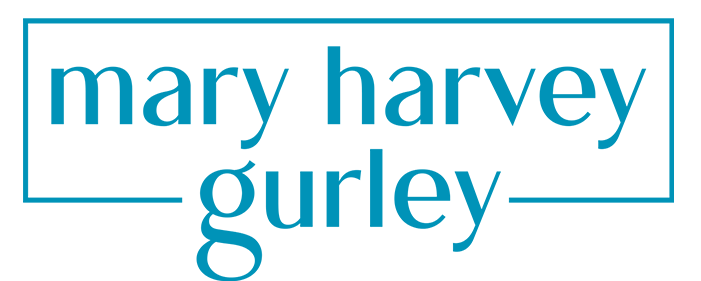Estate Planning for Women
When my husband died, I was in shock, saddened, and angry. Every emotion you can think of for someone who lost the love of her life. Following the funeral, the day will come when you must look at the business aspect of dying. That’s not meant to be cold-hearted; it’s a reality.
I think my first jolt was when I received a call from my corporation’s HR department notifying me of an insurance policy I had available. It wasn’t a large policy, but it did come in handy. His employer didn’t provide any assistance—it didn’t even pay his last paycheck or the commissions he was due. The next jolt was a letter from American Express expressing their sympathy for his death and asking whether I wanted to continue our card.
My husband was a brilliant CPA and political advisor. His client files at home were in 3-ring binders. Just as with the cobbler’s kids, our finances weren’t in the same order. I found one small insurance policy in a shoe box under the bed.
An attorney friend probated the will, my first time to appear in court. After several weeks, I discovered he needed to keep our estate paperwork up to date, and there were serious issues. I was a journalist and a PR person; I knew nothing about financial planning; I had left everything up to him.
My first advice to all women: Find out and understand every aspect of your family finances. Do not take for granted that everything has been handled. Meet with your family accountant, estate attorney, and financial advisors to understand everything completely.
My second advice is to hire a team to assist you with every aspect of your finances and estate planning. We will go deeper into how to find a reputable team.
1. Grasping the Essentials of Estate Planning: Estate Planning: More Than Legal Documents, It’s Your Peace of Mind
Estate planning is crucial in ensuring your assets, from significant investments to sentimental personal items, are distributed as per your wishes. It’s not just about the legalities but also about planning for your healthcare and preserving your legacy.
2. Foundations of a Solid Estate Plan: Wills, Trusts, Beneficiaries: Setting the Cornerstones: Wills, Trusts, and Beneficiary Designations
Establish a will, consider setting up a trust, and update your beneficiary designations on accounts and policies. These steps are vital in ensuring your assets go to the intended recipients.
3. Comprehensive Asset and Debt Assessment: Inventorying Your Life: Understanding What You Own and Owe
Conduct a thorough inventory of your assets and liabilities. This includes real estate, investments, personal belongings, and debts. A clear picture of your financial landscape is the bedrock of an effective estate plan.
4. The Role of Executors and Trustees: Choosing Your Financial Guardians: Executors and Trustees
Appointing a trustworthy individual to oversee your estate is a crucial decision. This person should be reliable, well-organized, and aligned with your values.
5. Safeguarding the Future of Dependents and Loved Ones: Protecting Your Loved Ones Through Thoughtful Planning
For those with children or dependents, estate planning allows you to set up mechanisms for their care and future, such as guardianship designations and educational trusts.
6. Special Considerations for Business Owners and Creators: Your Business and Creative Legacy: Estate Planning for Entrepreneurs
Your estate plan should encompass your business and intellectual property, outline succession plans, and ensure the continuation of your professional legacy.
7. Making Your Healthcare Wishes Known: Healthcare Directives: Ensuring Your Wishes Are Respected
Healthcare directives are vital to your estate plan, outlining your preferences for medical care and end-of-life decisions.
8. Smart Tax Planning and Charitable Contributions: Maximizing Your Legacy Through Tax Strategies and Philanthropy”
Explore tax-efficient strategies and charitable giving options to enhance the impact of your legacy while minimizing the tax burden on your beneficiaries.
9. Avoiding Common Estate Planning Mistakes: Steering Clear of Pitfalls in Estate Planning
Be vigilant against common errors, such as neglecting updates or overlooking digital assets. Regular reviews are crucial to keeping your plan relevant.
10. The Importance of Professional Advice: Seeking Expertise: The Role of Estate Professionals
Don’t shy away from seeking help from estate attorneys and financial advisors. Their expertise can ensure your plan is comprehensive and legally sound.
11. Tailored Estate Planning for Widows: Adjusting Your Plan: Estate Planning Post-Loss
For widows, reevaluating your estate plan is essential. Focus on immediate financial needs, reassess your estate plan, and seek professional guidance to navigate this transition effectively.
12. Keeping Your Estate Plan Current: Adapting to Life’s Changes: The Need for Regular Estate Plan Reviews
Life is dynamic, and so should be your estate plan. Regular updates are necessary to reflect changes in your life circumstances.
Estate planning is empowering, giving you control over your financial future and ensuring your legacy is honored. Whether navigating this journey in the wake of a loss, planning for retirement, or providing for the well-being of loved ones, a well-crafted estate plan is a gift of security and peace to yourself and those you cherish.

